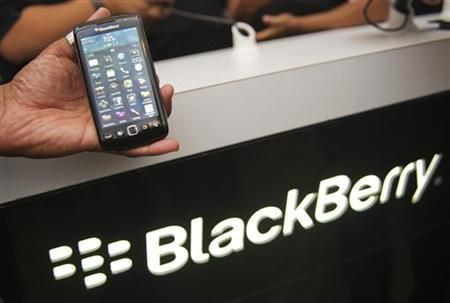Blackberry Outage: Will the RIM Phone Be All But Extinct Soon?

A BlackBerry outage, which began on Monday around 10:20 a.m. BST, has resulted in limited access to e-mails, Web browsing, and messaging services such as BlackBerry Messenger, or BBM.
RIM said it had resolved the issue late Monday, but Tuesday morning, millions of BlackBerry subscribers woke up to find service still disrupted. With problems like RIM's not happening with Apple's iPhone or Google's Android devices, it seems as if the Blackberry's popularity continues to plummet to the point where it will become close to completely stifled by its competition.
Customers all over the world have been experiencing the issues, said RIM in a statement. BlackBerry failures in Europe, the Middle East, Africa, India, Brazil, Chile and Argentina were caused by a core switch failure within RIM's infrastructure.
Although the system is designed to failover to a back-up switch, the failover did not function as previously tested, the company explained in the statement. As a result, a large backlog of data was generated and we are now working to clear that backlog and restore normal service as quickly as possible. We apologize for any inconvenience and we will continue to keep you informed.
Angry BlackBerry users expressed their frustration with the outage and the company's handling of the situation on Twitter and other social-networking sites. Some even said they were considering switching to the iPhone or a device using the Android platform. @Gemified said:
Want to know why #BlackberryOutage isn't trending? No one can get on their phones to tweet about it! #FAIL BB *smh*
RIM uses a centralized architecture that routes all e-mail and messaging traffic through its BlackBerry servers in network operation centers throughout the world. This centralization means that additional encryption and security can be added to the messages that traverse the network. And, for many corporate customers, this added security is the main reason they use the service.
But, with the benefit comes the cost. When there is a major infrastructure disruption, it can affect entire regions of service, potentially knocking out service for tens of millions of customers. Google Android devices and iPhones don't suffer from the same outages because there is no single point of failure in the network.
RIM has more than 70 million subscribers worldwide, but it has been losing customers steadily in the U.S. to competitors: Apple with its iPhone and Google with Android devices. RIM executives have said that the company has been focusing efforts on acquiring customers outside the U.S.
As a result, the company has seen strong growth in places such as India and the Middle East. But it's been squeezed on pricing in those markets. In its most recent quarterly report, the company's revenue was down almost 10 percent compared with last year and its profits fell nearly 60 percent.
RIM's PlayBook tablet, introduced in the spring, has been a big contributor to the company's fall. RIM shipped only about 500,000 units in its first quarter on the market. And it sold only 200,000 in the second quarter it was available. The company is now offering deep discounts on the device.
The recent release of the iPhone 4S and Android's continued popularity of 4G speed and apps seems to be dwarfing RIM and BlackBerry. How long will it be before BBM is O-U-T?
© Copyright IBTimes 2024. All rights reserved.





















